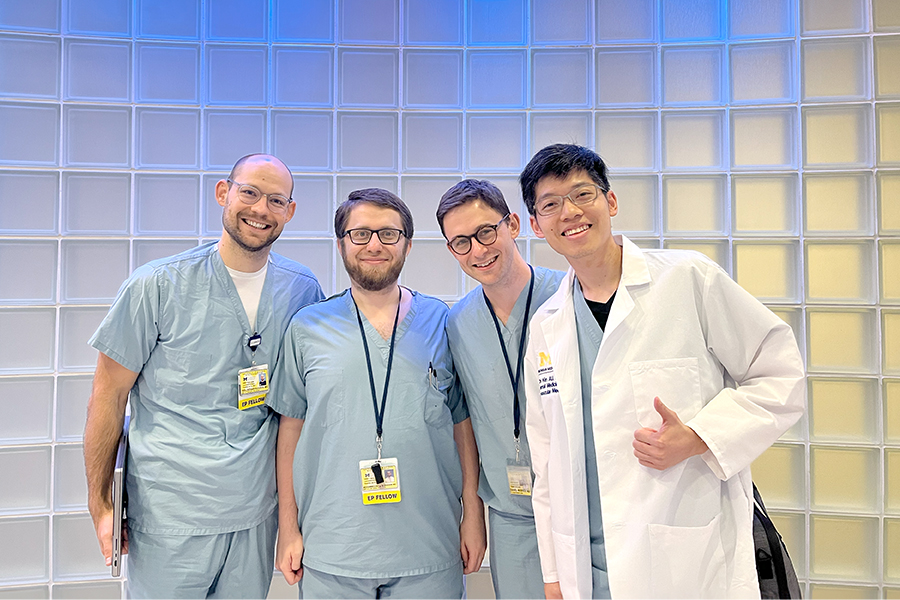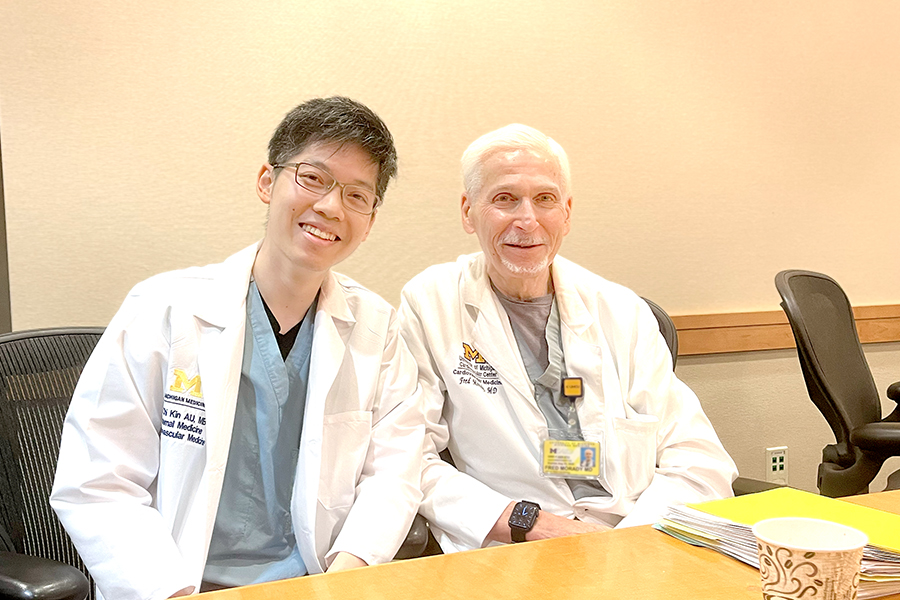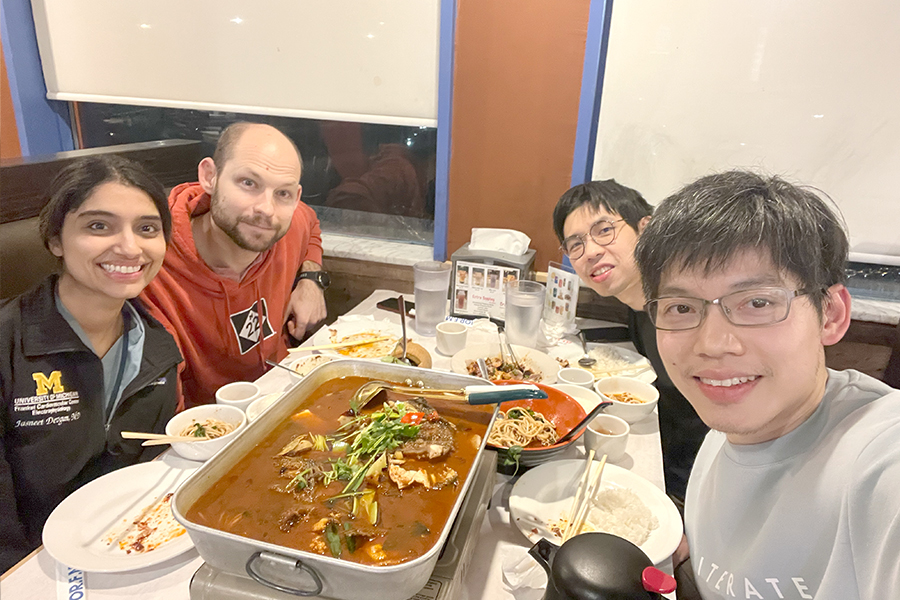Cardiologist learns lessons on U.S. study trip
 Cardiologist Dr Alex Au of the Department of Medicine & Therapeutics at Prince of Wales Hospital (PWH) was given a donation designated for doctor’s overseas training from donors Jesse Lu and Lambert Lu, and went to the United States (U.S.) for advanced studies in the treatment of arrhythmia, or irregular heartbeat. In a demanding schedule, he performed surgeries and visited patients during the day and provided a consultation service in the evenings. When he returned to Hong Kong, he shared what he had learnt with his colleagues and put it into practice. Looking back on his year in the U.S., Dr Au says it was “hard work but worth it” and had helped him develop as a doctor.
Cardiologist Dr Alex Au of the Department of Medicine & Therapeutics at Prince of Wales Hospital (PWH) was given a donation designated for doctor’s overseas training from donors Jesse Lu and Lambert Lu, and went to the United States (U.S.) for advanced studies in the treatment of arrhythmia, or irregular heartbeat. In a demanding schedule, he performed surgeries and visited patients during the day and provided a consultation service in the evenings. When he returned to Hong Kong, he shared what he had learnt with his colleagues and put it into practice. Looking back on his year in the U.S., Dr Au says it was “hard work but worth it” and had helped him develop as a doctor.
Dr Au flew to the U.S. in June last year and studied at Michigan Medicine at the University of Michigan. He focused on electrophysiology, i.e. arrhythmia or irregular heartbeat. When the heart beats either too quickly or too slowly, it leads to arrhythmia. Irregular heartbeat most commonly appears as atrial fibrillation and is prevalent among elderly. Patients with the condition are five times more likely to suffer from stroke and three times more prone to heart failure, meaning the situation should not be neglected.

Share experience with co-workers in Hong Kong
Michigan Medicine is the leading electrophysiology research center in the U.S. and annually carries out 3,500 catheter ablations – a process whereby catheters are inserted in blood vessels to the target site with abnormal heart beat. Energy will be released to make it lose the conduction property, saving patients suffered from arrhythmia. The expertise of the hospital made it an ideal place for electrophysiologist Dr Au to train.“The hospital has six operating theatres dedicated to catheter ablations,” he says. “Their monthly capacity is almost equal to that of the PWH for a whole year. I got to see patients at six in the morning. Then, colleagues would share details of the cases we were taking care of with each other. After that, I performed surgery until 5pm. I was also on duty at night to give my opinions to doctors regarding arrhythmia cases.” He describes his intense routine boosted his personal growth. During his stay in the U.S., the renowned cardiologists also taught him a valuable lesson.
Catheter ablations are more effective than drug therapy in maintaining the heart function of patients in the long run, Dr Au found. In the U.S., most patients choose to undergo catheter ablations. After returning to Hong Kong, he shared his experiences with colleagues and encouraged them to perform catheter ablations for suitable patients.

Donation eases the financial strain
As well as carrying out catheter ablations and implanting pacemakers, Dr Au also learnt about pre-operative preparations, post-operative follow-ups, day service, and telemonitoring techniques that he believes could benefit Hong Kong and decrease the length of stay for inpatients.“Every cardiologist in Hospital Authority has to go overseas for a year of advanced study. I was very lucky to receive a donation which greatly reduced my financial burden,” Dr Au reflects. “It allowed me to focus on my work. The living standards in the U.S. are high and I had to spend a lot on renting a house, for instance.” Dr Au believes that he learnt a great deal and hopes to promote the use of catheter ablations in Hong Kong for the benefit of patients.